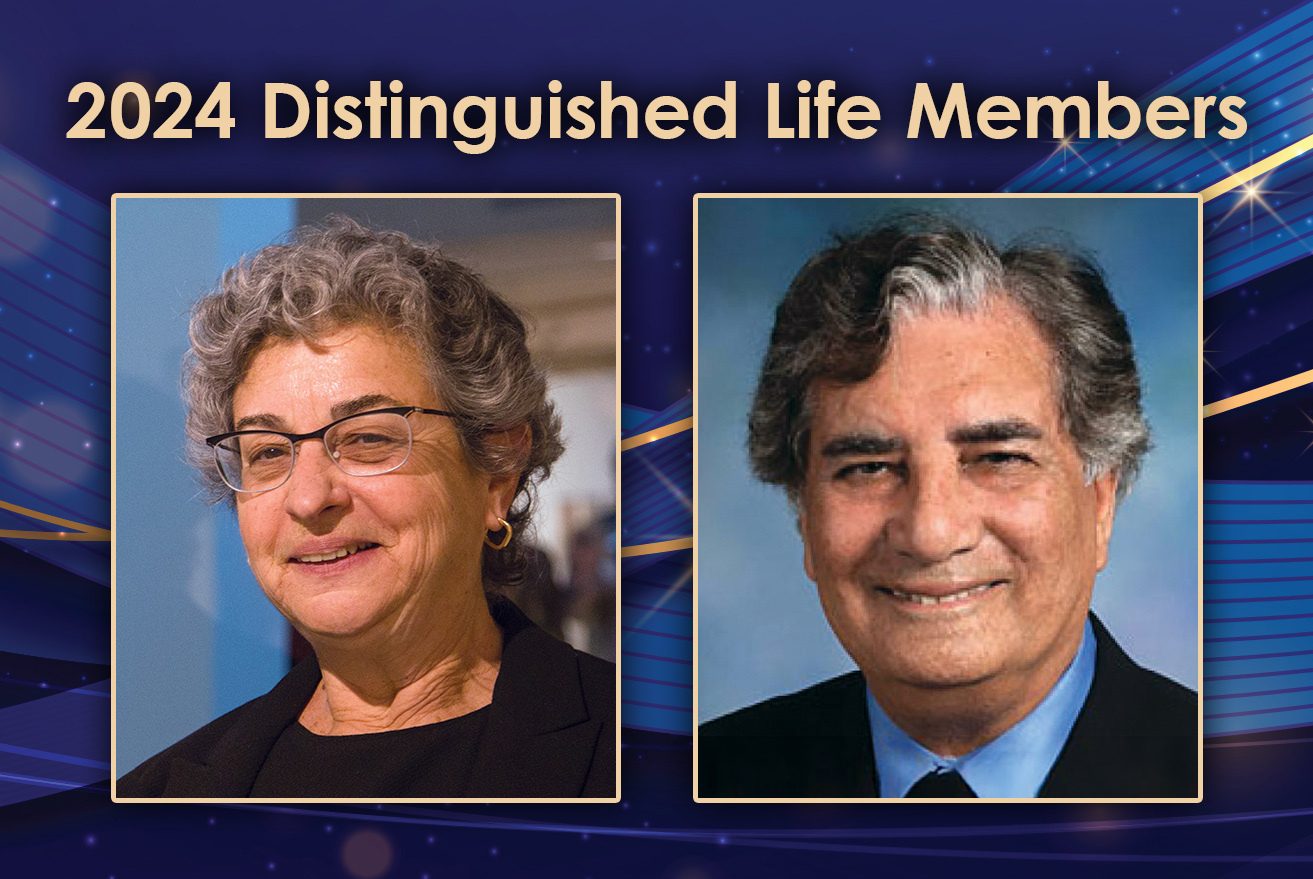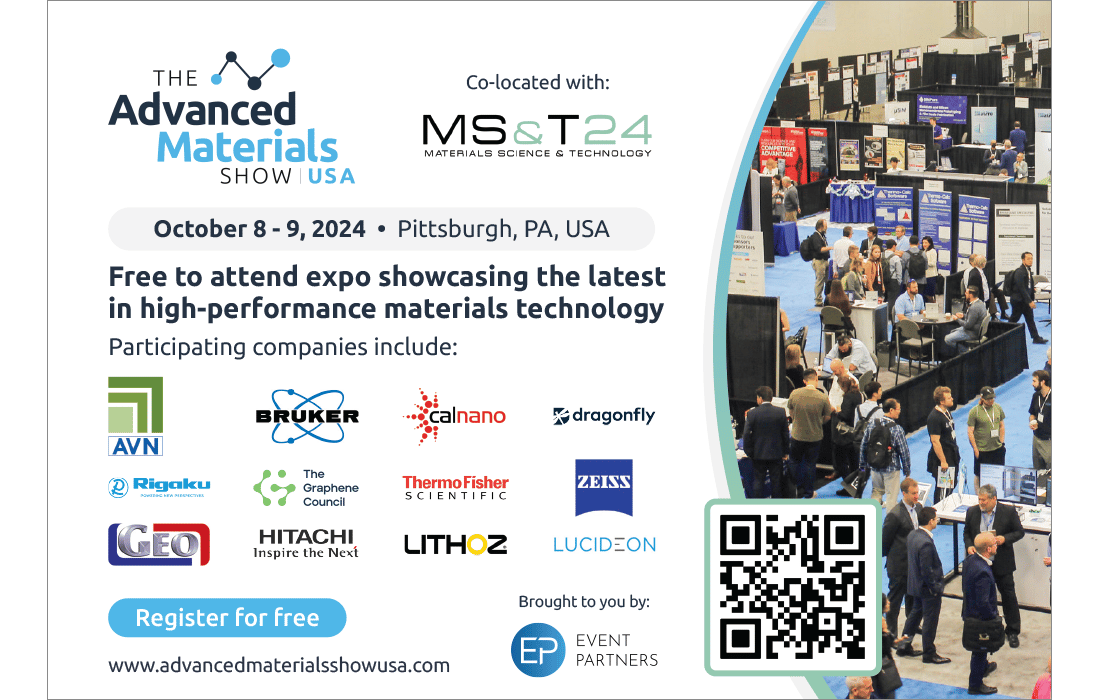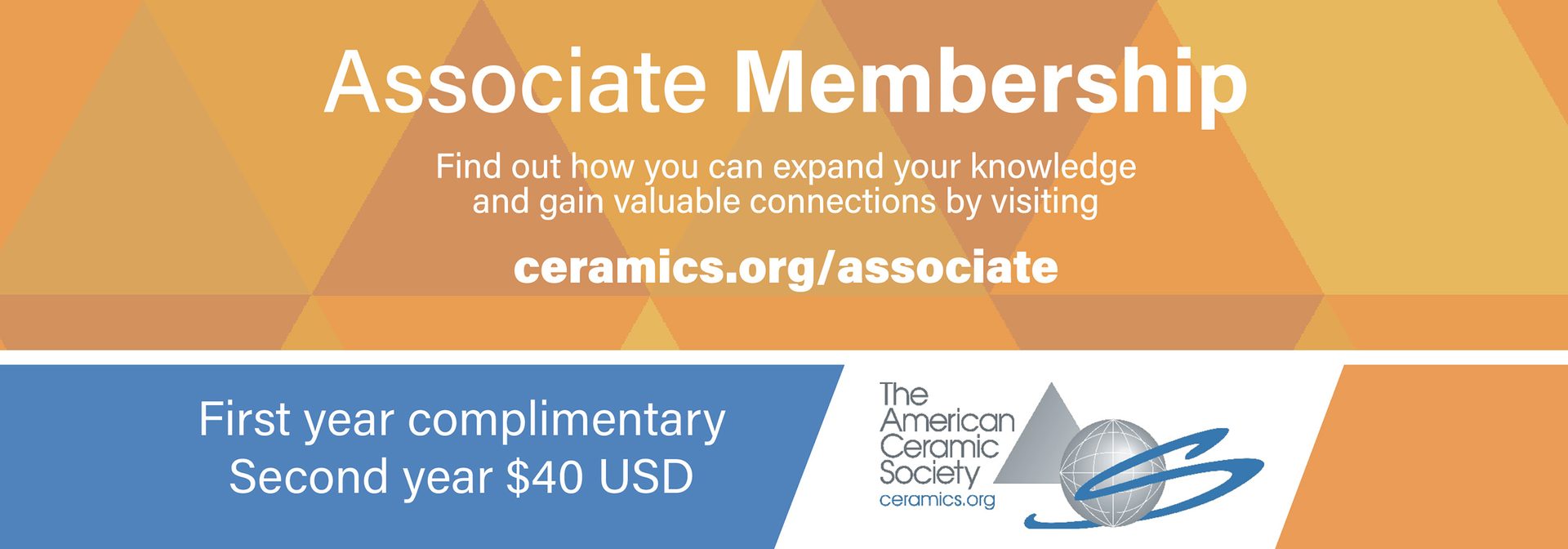
acers spotlight

Honoring the ACerS Awards Class of 2024
Over its long history, The American Ceramic Society has established a tradition of awards to recognize its members’ outstanding contributions and accomplishments and to create career benchmarks for aspiring young scientists, engineers, and business leaders.
The most prestigious of ACerS awards is Distinguished Life Member designation, a recognition bestowed upon only two or three members each year. In 2024, two individuals will receive DLM honors: Lisa C. Klein and Zuhair A. Munir.
The Society will elevate 13 members to Fellow and recognize many more outstanding members with various Society, Division, and Class awards during the ACerS Annual Honor and Awards Banquet Reception on Oct. 7, 2024.
2024 Distinguished Life Members
Lisa C. Klein
People very rarely end up in the career they imagined pursuing as a child. But Lisa C. Klein is not like most people.
“I told my first-grade teacher that I was going to be an engineer. Many years later, when I ran into her again, she said, ‘Well, what have you done? Have you become an engineer?’ And in fact, I had,” Klein says.
Though neither of Klein’s parents were engineers, she grew up in a time that placed great emphasis on science. The space race between the United States and the Soviet Union drove discussion and funding for science across the nation, while closer to home, Klein was inspired by field trips to local industrial facilities, such as commodity chemical plants run by DuPont, a major employer in the area.
Klein initially earned a B.S. in metallurgy from Massachusetts Institute of Technology, but it was during her graduate studies in the university’s materials science department when she discovered her passion for ceramics and glass, specifically sol-gel processing of these materials.
“I was working on a glass composition that was not very easy to make. It was a sodium aluminosilicate,” Klein says. “Rustum Roy had written a paper at the time talking about the sol-gel process, and I thought, ‘Oh, that might make it easier to get a uniform glass.’”
Klein’s interest in what was at the time a laboratory curiosity has since evolved into more than 250 peer-reviewed publications, patents, book chapters, and edited books on the topic of sol-gel processing and other related glass topics. She is now widely recognized as a leading expert in the field of sol-gel science and engineering, particularly for applications in electrolytes, electrochromics, membranes, and nanocomposites. Her seminal efforts were on display during ACerS Annual Meeting at MS&T22 when she delivered the Arthur L. Friedberg Ceramic Engineering Tutorial and Lecture, titled “From moon rocks to melting gels.”
In addition to her groundbreaking work on sol-gel processing, Klein is known for her dedication to the advancement of women in science. She was the first woman to join the Department of Ceramic Science and Engineering at Rutgers, The State University of New Jersey, in 1977, and the university awarded her a Human Dignity Award in 2015 to recognize her work “leveraging opportunities to encourage women, underrepresented minorities, and economically disadvantaged individuals to pursue their aspirations.”
Klein originally became a member of ACerS in graduate school. During her more than 50 years as a member, she served the Society in various roles on committees and as an editor of Journal of the American Ceramic Society from 1998–2019. In addition to the Friedberg Lecture, Klein has been recognized with the Karl Schwartzwalder-Professional Achievement in Ceramic Engineering Award (1987), the Michigan/Northwest Ohio Section’s Toledo Glass and Ceramic Award (2018), and the Darshana and Arun Varshneya Frontiers of Glass Science Lecture (2023).
Considering the reach of her career, Klein says people are often surprised to hear that Columbus, Ohio, has been her number one destination over the years. But this revelation demonstrates her long-standing commitment and involvement as a member of ACerS.
Regarding her recent designation as DLM, Klein says she is honored to be recognized by a society that supports its members in so many ways.
“The American Ceramic Society has so many opportunities to get involved, both the publications, the scientific content, the meetings. To me, it is being part of an organization that very much appreciates its members’ contributions,” she says.

Zuhair A. Munir
Out of a long career filled with research, awards, and lectures, Zuhair A. Munir gives credit to the many students he has mentored as a source for his success.
“Over decades of teaching and doing research, I have had the good fortune of working with scores of outstanding young students and scholars who contributed immensely to my accomplishments. This honor belongs to them also,” says Munir.
Munir spent his student years at the University of California, Berkeley, where he received a B.S. in chemical engineering with honors and a Ph.D. in ceramic engineering. He then taught at San Jose State University and Florida State University before joining the University of California, Davis, where after more than four decades he now holds the positions of Distinguished Professor, Emeritus and Dean, Emeritus.
Munir is world renowned for his work on the use of electric fields in materials processing. In the 1970s, he investigated the effect of electric fields on phase transformations and the formation and mobility of defects in ceramics; he received two National Science Foundation Creativity in Research Awards for this work. Then, in the 1980s, he began studying the role of electric fields on self-propagating high-temperature synthesis (SHS) reactions, including work in microgravity aboard NASA’s “Vomit Comet.” In the 1990s, he added spark plasma sintering (SPS) to his list of research topics when he acquired an SPS facility at UC Davis, the first in the Western Hemisphere. He also studied field effects on electromigration, dissolution in liquid metals, annealing of point defects, and crystallization of metallic glass.
Munir has shared his research with the community through several ACerS publications, including an invited feature article on SPS for Journal of the American Ceramic Society and an invited feature article on SHS in the ACerS Bulletin. The latter article was translated and published in a Chinese journal, and the Chinese government then invited him for a month-long visit to give lectures on SHS at major universities and research institutes in the country.
Munir has received numerous awards for his pioneering work on SHS and SPS, including the Medal of Honor at the Fourth International Symposium on SHS, the Gold Medal from the Russian Academy of Science, the Prometheus Award from the National Institute of Materials Science in Japan, and the UC Davis Prize. He also has had several events organized in his honor, including a symposium at the 10th Pacific Rim Conference on Ceramic and Glass Technology, a workshop at the University of Valenciennes in France, and the Fourth International Workshop on Spark Plasma Sintering (plus its proceedings book). In addition, for his work on synthesizing dense nanocrystalline cubic zirconia, Munir received the Nano 50 Award, which recognizes technologies “most likely to impact the state of the art in nanotechnology.”
Munir has volunteered with ACerS in several capacities, including as co-organizer for eight International Conferences on Advanced Ceramics and Composites as well as the International Symposium on Combustion and Plasma Synthesis. He co-edited four books in the “Ceramic Transactions Series” and served as associate editor of Journal of the American Ceramic Society. He also was a member of several Society committees.
“It is with a great sense of humility and gratitude that I acknowledge the recognitions I have received from ACerS over the years: the W. David Kingery Award, the James I. Mueller Memorial Award, the John Jeppson Award and Medal, and the Outstanding Educator in Ceramic Engineering Award,” says Munir. “But with this honor of Distinguished Life Membership, I feel a special sense of gratitude because it provides a fitting milestone for my work and for my association with our Society.”
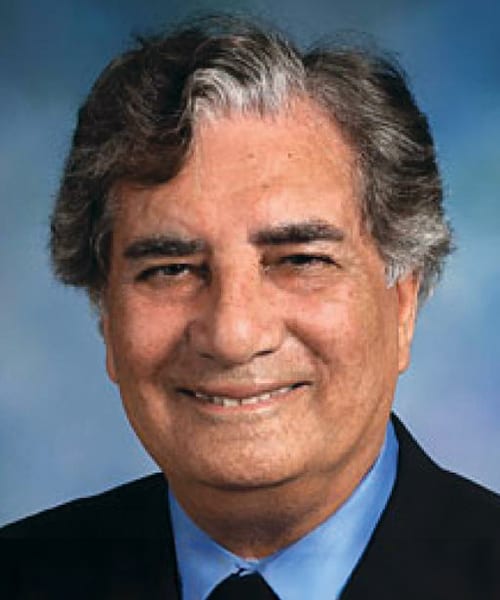
The 2024 Class of Fellows
Victoria Blair is research materials engineer serving the U.S. Army Combat Capabilities Development Command at the U.S. Army Research Laboratory. She received her B.S. in ceramic engineering and Ph.D. in ceramics from Alfred University. She has been an ACerS member since 2007 and is a member of the Basic Science Division. Blair has served on multiple committees within ACerS, including the Member Services Committee, Strategic Planning and Emerging Opportunities Committee, Educational and Professional Development Council, and the Young Professionals Network. She currently serves as the President’s Council of Student Advisor’s mentor-at-large. In 2021, she received the Du-Co Ceramics Young Professional Award and the Robert L. Coble Award for Young Scholars.

Willard Cutler is division vice president and commercial technology director at Corning Incorporated. He received a B.S. in materials science and engineering from the University of Utah and a Ph.D. in materials from the University of California, Santa Barbara. He has been an ACerS member since 1988 and is a member of the Basic Science Division.

Edward Gorzkowski, III, is branch head of the Multifunctional Materials Branch at the U.S. Naval Research Laboratory (Washington, D.C.). He earned his B.S. and Ph.D. degrees in materials science and engineering from Lehigh University. Gorzkowski is the current chair of the Electronics Division, as well as a member of the Basic Science and Energy Materials and Systems Divisions. He is a founding member and previous co-chair of the Washington, D.C., Maryland, and Virginia Section. He co-organized the Electronic Materials and Applications conference in 2022 and 2023, and he served as a symposium organizer for sessions at EMA, MS&T, and PACRIM conferences both present and past. He has also served on the ACerS Book Subcommittee and is former chair of the Young Professionals Network. He received the 2015 Du-Co Young Professionals award, a 2018 Best Paper award for Journal of the American Ceramic Society, and a 2020 Richard M. Fulrath award.
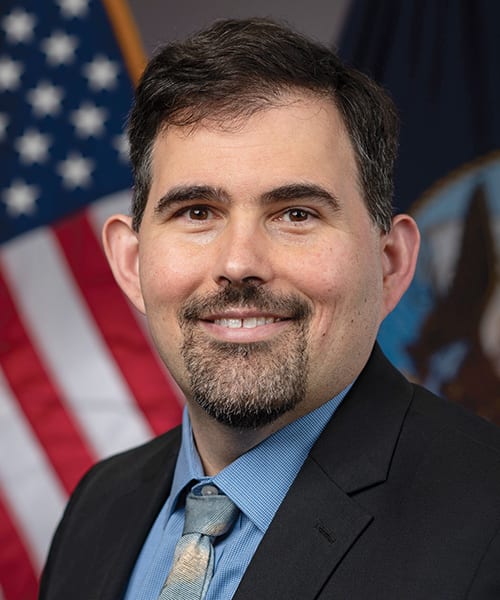
Kevin Huang is South Carolina SmartState Endowed professor and director at the University of South Carolina. He received his Ph.D. in physical chemistry from the University of Science and Technology Beijing. Huang has been an active ACerS member since 2010 in the Basic Science, Electronics, and Energy Materials and Systems Divisions, in addition to the ACerS Carolinas Section.

Emanuel Ionescu is deputy director and head of the Department of Digitalization of Resources at Fraunhofer IWKS, Germany. He is also an adjunct professor in materials and earth sciences at TU Darmstadt. He received his Ph.D. in inorganic chemistry from the University of Bonn, Germany. Ionescu served as secretary of the ACerS International Germany Chapter from 2018–2021. In 2022, he was recognized with the ACerS Global Star award.

Kang Lee is senior research scientist at NASA–John H. Glenn Research Center. He originally joined NASA Glenn Research Center in 1990 after postdoctoral training at the University of Pennsylvania and returned in 2016 to continue his work in environmental barrier coatings. He is a member of the Engineering Ceramics Division and has been involved with ACerS through organizing conference symposiums and delivering invited lectures.

Navin Manjooran is chairman of Solve, a technology and research services company addressing energy, industry, medical, and infrastructure challenges. He received a B.Tech. in metallurgical engineering from the National Institute of Technology, India, an M.S. in materials science and engineering from the University of Florida, and a Ph.D. in materials science and engineering from Virginia Tech. He has been an ACerS member since 2003 and is a member of the Glass & Optical Materials, Bioceramics, and Manufacturing Divisions.

Lalit Sharma is CEO at Mahamana Ceramic Development Organization, India. He received his materials technology and Ph.D. degrees in ceramic engineering from the Indian Institute of Technology Varanasi. Sharma is a member of the Engineering Ceramics Division. He has given invited talks on behalf of ACerS, in addition to serving as former chair of the Global Corporate Achievement Award Committee. He is a recipient of the ACerS Global Star award, Global Ambassador award, and Corporate Environment Achievement award. He currently serves as chairperson of the ACerS International India Chapter.

Klaus van Benthem is professor of materials science and engineering at the University of California, Davis. He received his Ph.D. from the Max-Planck Institute for Metals Research, Germany, and completed postdoctoral work at Oak Ridge National Laboratory. He has been an ACerS member since 2010 and is a member of the Basic Science Division.
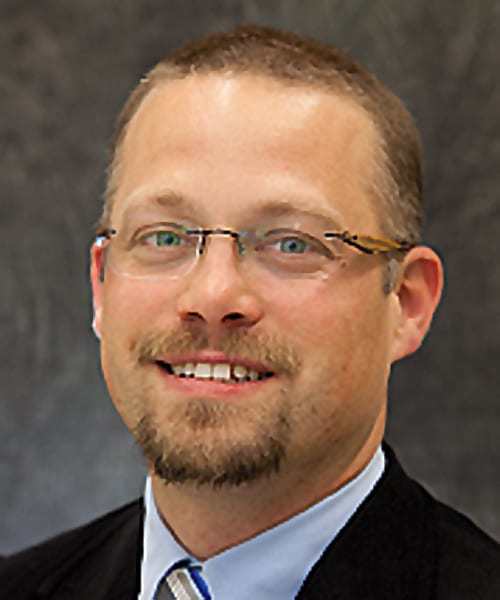
Gerard Vignoles is professor and head of the ThermoStructural Composites Lab (LCTS, a joint unit with CNRS, CEA, and Safran Group) at the University of Bordeaux. He graduated from Ecole Normale Supérieure (rue d’Ulm, Paris) and joined LCTS as a Ph.D. student. Vignoles has been an ACerS member since 2005 and is a member of the Engineering Ceramics Division. He has organized symposia for the ICACC and Pacific Rim conferences, among others, and he received the ACerS Global Ambassador award in 2020.

Min Wang is professor of mechanical engineering of the University of Hong Kong. He earned his B.Sc. and Ph.D. in materials science and engineering at Shanghai Jiao Tong University, China, and the University of London, U.K., respectively. He has been a member of ACerS since 2009 and is a member of the Bioceramics Division. He actively participates in ACerS organized activities and conferences.

Hui-Suk Yun is head of the Department of Advanced Biomaterials Research at Korea Institute of Materials science and professor of materials science at the University of Science & Technology, Republic of Korea. She received her Ph.D. in materials science and engineering from the University of Tokyo, Japan. Yun is a member of the Engineering Ceramics Division. She is a recipient of the 2021 ACerS Global Ambassador award and 2020 Jubilee Global Diversity award.

Jie Zhang is principal investigator of Shenyang National Laboratory for Materials Science and Institute of Metal Research, Chinese Academy of Sciences, China. She received a Ph.D. in materials science from the Graduate School of the Chinese Academy of Sciences. Zhang has mentored many young researchers and students in ACerS. She has served as a member of the Executive Committee of the Engineering Ceramic Division since 2021, and she now serves as chair-elect of the ECD. She worked as a committee member (2019–23) and chair (2022–23) of the John Jeppson award. She has served as an organizer for the “Advanced MAX/MXENE Phases and UHTC Materials for Extreme and High Temperature Environment” symposium series at ECD’s ICACC meetings since 2019, “Global Young Investigator Forum” symposium series at PACRIM, as well as CMCEE conferences. Most recently, she served as the program chair of ICACC 2024.

The American Ceramic Society
2024 Annual Honors and Awards Banquet
126 Years of Advancing the Ceramics and Glass Community
Monday, Oct. 7 at MS&T24
6–6:30 p.m. Reception
6:30–10 p.m. Dinner and awards
Grand Ballroom, Omni William Penn Hotel
Purchase banquet tickets with your conference registration or contact Erica Zimmerman.
Tickets must be purchased by noon on Sept. 27, 2024.
Society/Division/Section/Chapter News
For more information: ceramics.org
Welcome new ACerS International Brazil Chapter
Welcome to the newest ACerS International Chapter! The ACerS Board of Directors recently approved a petition to establish a Chapter in Brazil.
Chapter officers
- Chair: Dachamir Hotza, Federal University of Santa Catarina
- Treasurer: Agenor De Noni Jr., Federal University of Santa Catarina
- Secretary: Douglas Gouvea, University of São Paulo
Contact Vicki Evans for more information about this new Chapter or to form a Chapter in your region.
ACerS International Southwest India Chapter organizes symposium
The ACerS International Southwest India Chapter, along with the Indian Ceramic Society Karnataka Chapter, Electrochemical Society of India, and Visvesvaraya Technological University, Karnataka, is organizing “Green Energy Materials Meet (GEM Meet) – 2024,” a two-day International Symposium on Ceramics & Advanced Materials for Green Energy Value Chain. The symposium will take place from Sept. 23–24, 2024, in Bangalore, India. For more information, visit the Chapter’s webpage.
ADVERTISEMENT
ACerS International Spain Chapter participates in SECV conference
The ACerS International Spain Chapter participated in the annual Conference of the Spanish Ceramic and Glass Society, which welcomed around 180 people to Zaragoza, Spain, from June 11–14, 2024. Chapter chair Arnaldo Moreno served as one of the co-organizers of the event.
The Chapter sponsored a symposium at the conference titled “Current Advances in Additive Manufacturing of Glass and Ceramics: Processing Routes, New Feedstocks, and Applications.” One keynote lecture and 12 papers were presented in the symposium.


María Canillas from Universidad Politécnica de Madrid gave a talk on fabricating multicomponent microelectronic devices via laser deposition and sintering.
Notice: Do you qualify for Emeritus membership?
If you will be 65 years old (or older) by Dec. 31, 2024, and will have 35 years of continuous membership in ACerS, you are eligible for Emeritus status. Note that both criteria must be met. Emeritus members enjoy waived membership dues and reduced meeting registration rates. To verify your eligibility, contact Vicki Evans.
Central Ohio Section members enjoy clay throwing event
For the second year in a row, members of ACerS Central Ohio Section attended a clay throwing event at the Hands-On Art Barn in Galena, Ohio. The instructor, Matt, helped everyone throw clay on the potter’s wheels, and each member created several small clay objects, be that bowls, cups, or vases. Everyone returned a week later to glaze their pieces and turn them into works of art.

Dayton/Cincinnati/Northern Kentucky Section attend Dayton Dragons game
On June 16, 2024, ACerS Dayton/Cincinnati/Northern Kentucky Section held their annual Dayton Dragons baseball game outing in collaboration with the local sections of the American Chemical Society and the Society for the Advancement of Materials Processing and Engineering. The event was a success, with excellent attendance, good food and drink, and networking within the local ACerS Section and with other scientists and engineers in the area.

Attend your Division business meeting at MS&T24
Seven of ACerS Divisions will hold executive and general business meetings at ACerS Annual Meeting at MS&T24 in Pittsburgh, Pa. General business meetings will be held Monday or Tuesday in the David L. Lawrence Convention Center. Plan to attend to get the latest updates and to share your ideas with Division officers.
Monday, Oct. 7
- Electronics Division: Noon–1 p.m.
- Engineering Ceramics Division: Noon–1 p.m.
- Bioceramics Division: 2–2:30 p.m.
- Energy Materials and Systems Division: 4:30–5:30 p.m.
Tuesday, Oct. 8
- Glass & Optical Materials Division: 11 a.m.–Noon
- Basic Science Division: Noon–1 p.m.
Wednesday, Oct. 9
- Art, Archaeology & Conservation Science Division: 2–2:20 p.m.
Member Highlights
For more information: ceramics.org/members
Volunteer Spotlight: Maria Juenger
ACerS Volunteer Spotlight profiles a member who demonstrates outstanding service to the Society.
Maria Juenger is the L.B. (Preach) Meaders Professor of Engineering in the Fariborz Maseeh Department of Civil, Architectural, and Environmental Engineering at the University of Texas at Austin. Juenger received a B.S. in chemistry and Spanish from Duke University and Ph.D. in materials science and engineering from Northwestern University. After completing her Ph.D., she was a postdoctoral researcher in civil engineering at the University of California, Berkeley, before coming to UT Austin.
Juenger’s teaching and research focus on materials used in civil engineering applications. She primarily examines chemical processes in cement-based materials, including phase formation in cement clinker, hydration chemistry of cements and supplementary cementitious materials, and chemical deterioration processes in concrete. Her current research efforts emphasize the interaction of cement-based materials with the environment, such as the capacity of cementitious materials to produce or remove airborne and waterborne pollutants.
Juenger is an ACerS Fellow, and she delivered the 2024 Della Roy Lecture titled “The road to sustainable cement.” She is also a Fellow and current vice president of the American Concrete Institute.
We extend our deep appreciation to Juenger for her service to our Society!

ACerStudent Engagement: Pattiya Pibulchinda
Pattiya Pibulchinda is a Ph.D. student studying materials science and engineering at Northwestern University and serves as chair of the ACerS President’s Council of Student Advisors (PCSA) Professional Development Committee.
“Being part of PCSA has allowed me to engage with professionals and peers, especially through organizing webinars and symposiums. I’m thrilled to see how our networking events create spaces for sharing diverse ideas and positively impacting others.”
You can take advantage of these opportunities as well by becoming a student member of ACerS. Learn more.

Awards and Deadlines
For more information: ceramics.org/members/awards
Bt
To
N4
Contact: Vicki Evans
Nomination deadlines for Division awards: Sept. 25, 2024
Contact: Vicki Evans

xx

xx
Recognize your excellence: The case for self-nomination in awards
We know our members are leaders and innovators deserving of recognition. But do successful materials professionals simply wait to be recognized? The answer is no. Instead, they take proactive steps to ensure their hard work and stellar performance are acknowledged. One effective step that members can take is through self-nomination for awards or requesting colleagues to nominate them.
Why pursue awards?
- Reflection: The application process allows you to reflect on your skills, career progress, and achievements, helping you identify areas for improvement.
- Recognition: Winning awards distinguishes you from others, builds credibility, and can help establish you as an expert in your field.
- Support: Seeking nominations fosters strong relationships with senior colleagues, building a supportive professional network.
Benefits of self-nomination
Contrary to popular belief, self-nomination and seeking support letters from colleagues do not solely benefit the nominee. This process also helps raise awareness of high-quality work within the community, encouraging a culture of recognition and support.
Strategies for successful nomination
To increase your chances of a successful nomination, it is crucial to prepare thoroughly. For example,
- Review award requirements: Understand what the award committee is looking for.
- Compile supporting information: Gather both quantitative and qualitative data that highlight your achievements.
- Request detailed support letters: Ask trusted colleagues to provide comprehensive letters that reflect your contributions accurately.
Applying for multiple awards can also increase your chances of recognition. Remember, most awards committees keep nominations on file for up to five years. If you do not win initially, review and update your submission for the following year, possibly adding new support letters to strengthen your application.
ACerS: Honoring excellence in ceramics and glass
ACerS is proud to be the professional home to global leaders in the ceramics and glass community. Recognizing those who distinguish themselves within our community is a privilege we hold in great respect. So, take the initiative, ask for support, and let your excellence shine.
We particularly encourage nominations for deserving candidates from underrepresented groups, including women, minorities, industry scientists and engineers, and international members.
N4
Contact: Erica Zimmerman
Ixxxd
Txxx
Class and Division awards: Nominations due Jan. 15, 21, 31 or March 1, 2024
Contact: Vicki Evans
2xxxs
Txxx
Nominations for Division Awards
- Deadline: Nomination deadlines for Division awards are XXX
- Contact: Karen McCurdy
Nominations for Society Awards
- Deadline: Nomination deadline is XXX
- Contact: Email Erica Zimmerman or call 614.794.5821.
Students and Outreach
For more information: ceramics.org/resources-for-students
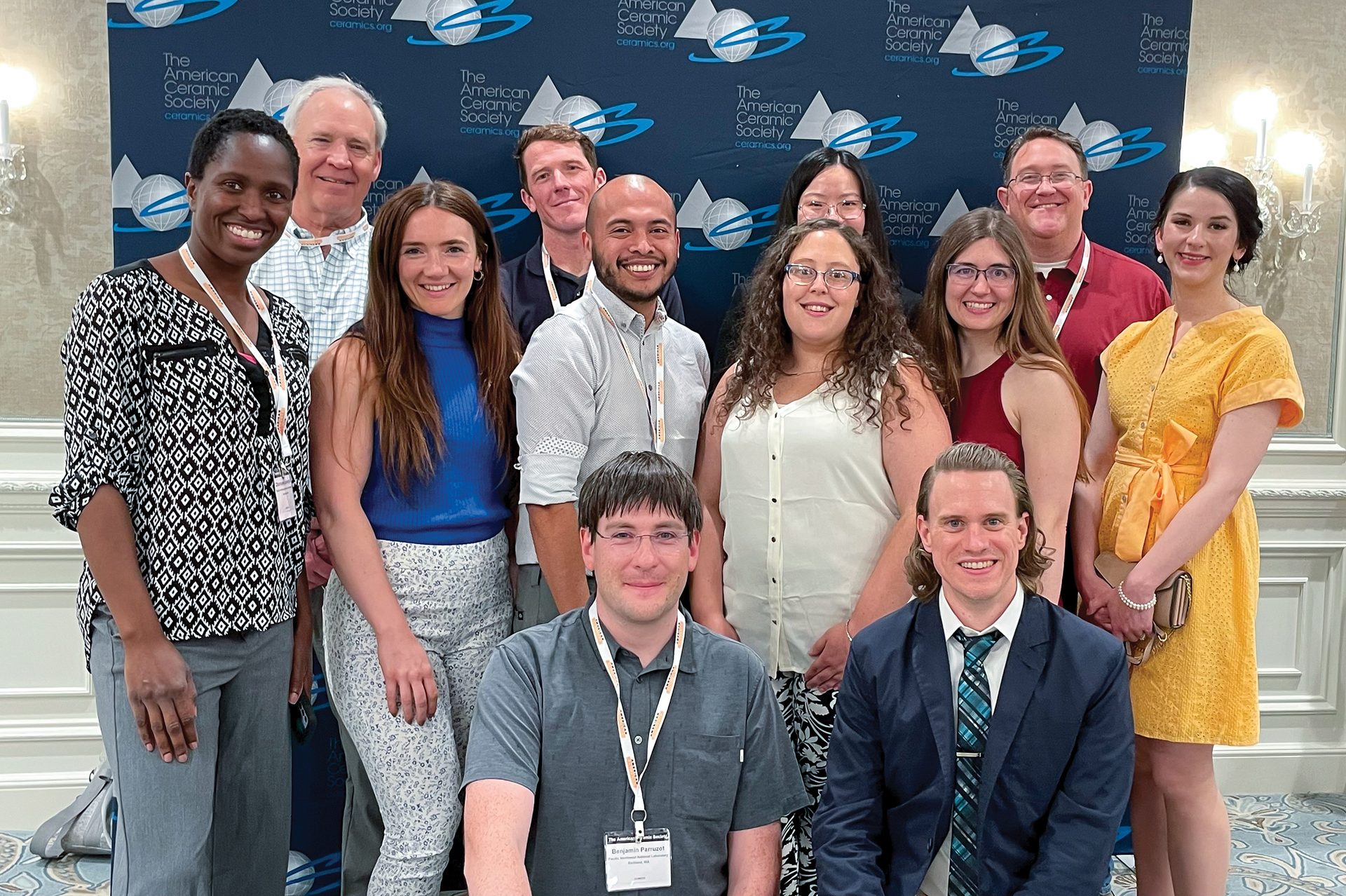
M
A
B

Introducing the new Ceramic and Glass Career Center

xx

xx
CGIF’s Materials Science Classroom Kit featured in PBS’s ‘Curious Crew’
By Ryan Schwieger, CGIF intern
The Ceramic and Glass Industry Foundation (CGIF) Materials Science Classroom Kit lessons were recently featured on the PBS show “Curious Crew,” hosted by Rob Stephenson.
“Curious Crew” is an award-winning educational PBS series produced by WKAR in East Lansing, Mich. Each episode dives into a different topic of science, with Stephenson and a crew of students conducting experiments to showcase concepts in a fun and engaging way to get students excited and curious about the world around them.
“I love working with inquisitive kids,” says Stephenson, a previous recipient of the Presidential Award for Excellence in Science Teaching (2006) and Michigan Teacher of the Year (2009–2010). “When I’m working with inquisitive kids, their energy feeds me, and gets me really excited about inquiry and phenomenon-based instruction and really starting to do authentic science.”

Rob Stephenson, center, stands with his team of student on the PBS hit show “Curious Crew.”
Credit: Robert Stephenson, PBS


T
A

xx

xx
The episode, titled “Materials Science,” dives deeply into the science behind materials, including ceramics, glass, composites, and metal alloys. During the episode, Stephenson and his team of students thoroughly tested the CGIF kit lessons titled “How Strong is Your Chocolate?” and the “Candy Fiber Pull,” as well as other lessons. The last section of the episode highlighted career opportunities within the materials science field. During this segment, students were given a tour of Michigan State University’s School of Packaging, showcasing the work that engineers do to create effective packaging.
“I love, love, love, seeing the profound impact that we are having, even in my own region, walking into a school, getting mobbed by kids recognizing me from Curious Crew, and have them share with me their favorite activity, their investigation,” says Stephenson.
The show has been a hit on PBS, garnering thousands of views worldwide. Stephenson also received two 2020 Michigan Regional Emmy Awards for his work on the show.
CGIF’s collaboration with Stephenson enables more students to explore the world of materials science, especially those based around ceramics and glass.
Collaborations such as this one are one of the many ways that the CGIF continues to foster involvement and awareness of the ceramics and glass industry, which would not be possible without the help from all our donors. If you would like to become a donor or continue to show your support, please visit https://foundation.ceramics.org/give.
Axxx

Txxx

Txxx
“It xxx

